As Stress Awareness Month comes to a close, I reflect on my journey of navigating stress. Like the relentless winds of a hurricane, chaos swirls around me and within me. Yet, within the eye of the storm lies the calm whisper of resilience.
As someone who is naturally prone to stress, remaining present amidst overwhelming emotions is challenging. Therefore, learning to control my thoughts and manage my emotions is pivotal. Additionally, transitioning from negative coping strategies to more positive ones is crucial for my overall well-being. As I continue on life’s journey, I hope to find calm amid its storms, seeking solace within the eye of the hurricane.
Stress and Health
In a previous post, I shared my health struggles, including hormonal imbalances indicated by my lab results. One notable finding was a high cortisol level, commonly known as the stress hormone. This discovery was part of a broader conversation with my endocrinologist, who unraveled the complexities behind these imbalances.
She attributed these findings to hypothalamic dysfunction, a condition where the hypothalamus fails to send the necessary signals to the pituitary gland for hormone production. My endocrinologist indicated that such disruptions—manifesting in a range of symptoms, including hypothalamic amenorrhea—are most commonly triggered by eating disorders and/or excessive exercise in young women.
Reflecting on my own battles with disordered eating and rigorous exercise routines, I couldn’t ignore the troubling connection: the very coping mechanisms I relied on to manage stress were, paradoxically, exacerbating my health issues. This revelation was pivotal, shedding light on the intricate link between my coping strategies and their lasting impact on my well-being. It highlighted the need for better stress management and emphasized the importance of healing and self-care.
Coping with Stress: The Good & the Bad
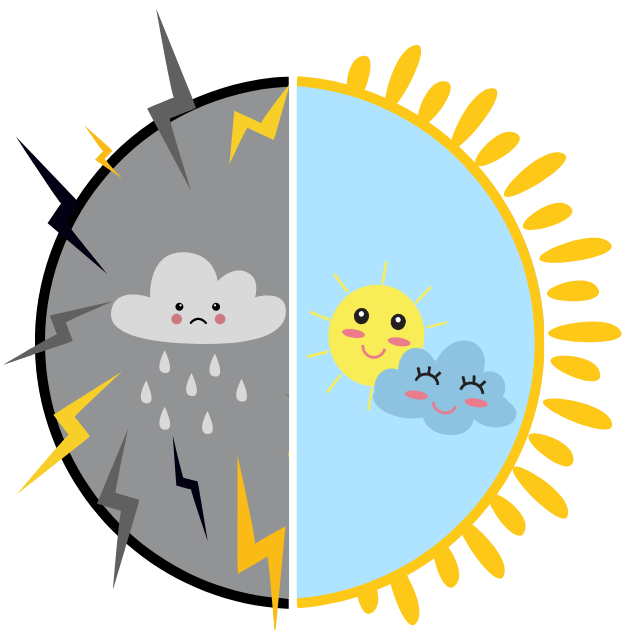
Navigating life’s challenges requires effective coping mechanisms to manage stress. Unfortunately, I’ve often leaned toward negative outlets rather than positive ones. However, I’m actively learning positive approaches and working to implement them in my life.
Negative Coping Strategies
Negative coping mechanisms, or maladaptive strategies, offer short-term relief at the cost of long-term well-being. Below are some of the behaviors I’ve engaged in.
Food Control
My relationship with food has undergone significant shifts over the years, all serving the same purpose: coping with emotional distress. From a young age, calorie counting and restriction became false companions, dictating every bite. I scrutinized food labels and logged each calorie into my food tracking apps, clinging to the illusion of control. However, this sense of control always remained perpetually out of reach, especially when I found myself in the binge-restrict cycle. Like a pendulum, I oscillated from one extreme to the next. My all-or-nothing mindset left no room for moderation or flexibility.
Now, in the pursuit of “health,” I’ve found myself obsessed with “clean” eating and staying away from foods that are “off-limits.” Any deviation from my rules and routines induces feelings of guilt and shame. Likewise, my fitness goals intertwine with macronutrient tracking, reducing each meal to a calculated equation devoid of pleasure or spontaneity.
Recently, I’ve realized that my “health-conscious” eating is merely another form of restriction. I know I haven’t repaired my relationship with food because I still feel “out of control” around foods I’ve banned. My hyper-focus on food control has not only strained my relationship with nourishment, but also compounded my stress levels, perpetuating a vicious cycle of restriction and rebellion.
In confronting my disordered eating patterns, I’ve realized the detrimental impact of this obsession with control. It’s not just about what I eat but also how I perceive food and its role in my life. Using it as a coping mechanism, I’ve taught both my mind and body not to trust me. I strive to break free from this cycle and challenge these behaviors. This demands a fundamental shift in mindset—one that embraces balance, moderation, and self-compassion. However, this remains challenging, as I struggle to find other ways to cope.
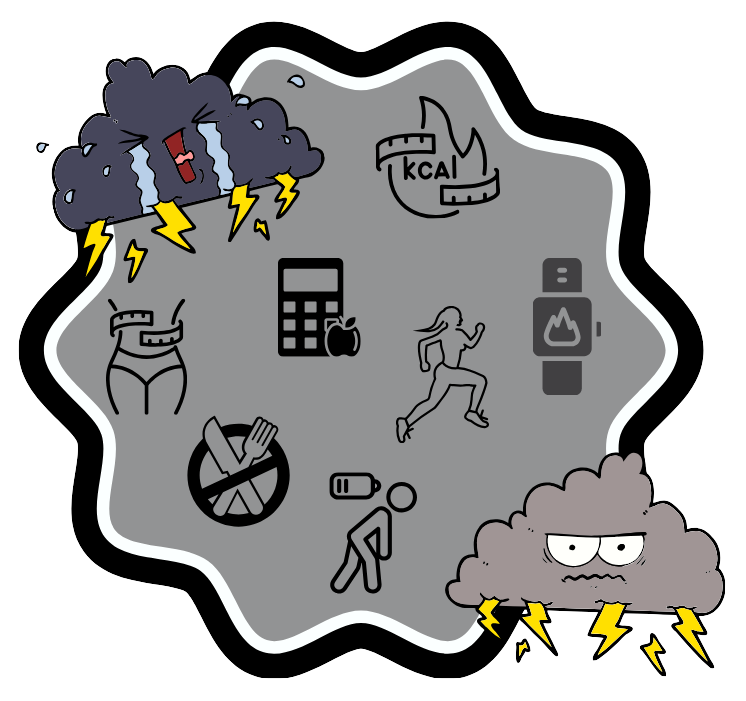
Exercise Obsession
Similarly, this desire to cope extended into an unhealthy obsession with exercise, where workouts became a means to “earn” my meals and alleviate guilt. Hours of cardio intertwined with dietary restrictions created a toxic cycle of punishment and reward. This reinforcement that I need to compensate for the calories I’d consumed further damaged my relationship with food.
Now, as my focus has shifted to strength training and muscle gain, the allure of the gym is irresistible. It offers a sanctuary where I can exert control over my body and silence the internal turmoil. However, in this relentless pursuit of fitness, I often ignore the signs of fatigue and exhaustion. Struggling to allow myself rest and recovery, the physical stress compounds with the mental, reinforcing my reliance on negative coping mechanisms.
While I understand the importance of rest for recovery, disordered thoughts convince me otherwise. They whisper that resting will cause me to get “fat” or lose my progress. Subconsciously, I think I still tie my self-worth to my physical appearance. Likewise, I feel uncomfortable in my body if I haven’t exercised. Silencing these harmful thoughts and shifting my mindset is crucial for my overall well-being.
Self-Isolation & Avoidance
In moments of mental distress, self-isolation becomes a refuge. I’ve convinced myself I don’t need anyone and that I’m better off alone. As a result, in my darkest times, rather than reaching out for help, I shrink into my thoughts and turn to other negative coping strategies. This adds to the feeling of loneliness and perpetuates a self-destructive loop.
Moreover, avoidance also extends to responsibilities that may trigger stress or anxiety. By procrastinating or putting off important tasks, I temporarily alleviate the immediate discomfort, but, ultimately, this compounds my anxiety and stress.
Recognizing the detrimental effects of self-isolation and avoidance, I know I need to find more constructive coping mechanisms that involve seeking support and learning to stay present.
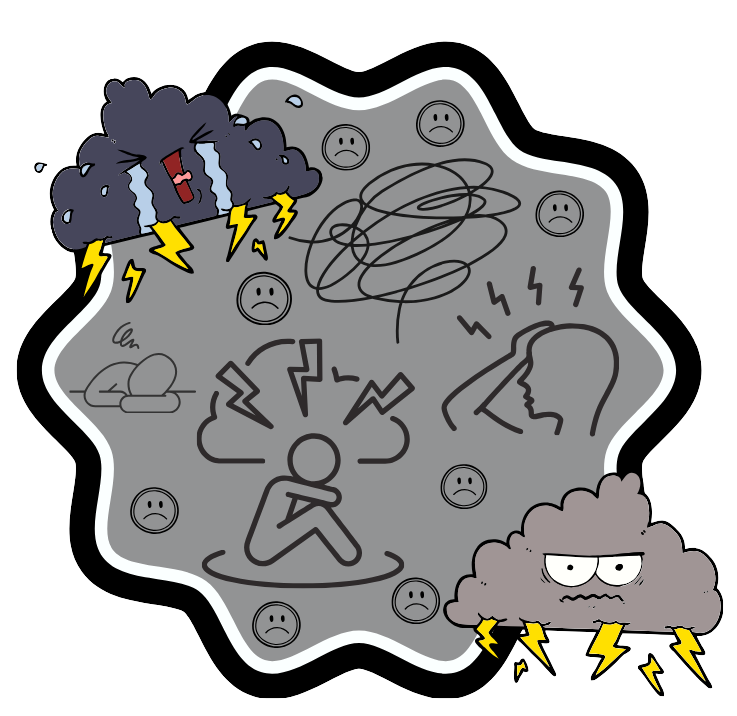
Self-Criticism
My harsh inner critic also exacerbates my stress levels, especially during deviations from dietary or exercise routines. Thoughts like, “What’s wrong with you?” or “You shouldn’t have eaten that,” become all too familiar, feeding into feelings of guilt and shame.
Even outside of struggles with food and exercise, self-criticism manifests in various aspects of my life. Whether it’s professional accomplishments, personal relationships, or creative pursuits, I find myself focusing more on perceived failures than celebrating successes. This constant self-criticism perpetuates a cycle of negativity, reinforcing feelings of inadequacy and undermining my self-esteem.
Shifting away from this self-destructive cycle requires practicing self-compassion. I must learn to acknowledge my imperfections without diminishing myself. Finding this balance means silencing my harsh inner critic and fostering a kinder self-dialogue.
Positive Coping Strategies
Positive coping mechanisms, or adaptive coping strategies, are healthy ways to minimize the effects of stress and promote well-being in the long-term. Below are some of the positive outlets I’m learning and nurturing.
Proper Nutrition
In contrast to restrictive eating patterns, I aim to focus on proper nutrition and adopt a balanced diet without rigid rules or guilt. This shift is ongoing, as I learn to view food as nourishment and joy rather than a source of anxiety and control. Repairing my relationship with food is crucial, as I recognize its profound impact on both my mental and physical well-being.
Additionally, I’ve reduced food to numbers, obsessively counting calories and tracking macros. Therefore, I strive to break free from these behaviors and the accompanying feelings of guilt and shame. This includes challenging my fixation on “clean” eating, which has amplified these disordered thoughts surrounding food.
Ultimately, dismantling the “all-or-nothing” mindset is essential not only for repairing my relationship with food but also for reclaiming my sense of self. Through this journey, I’m learning to nourish both my mind and body, and I strive to embrace a more balanced approach to eating and self-care.
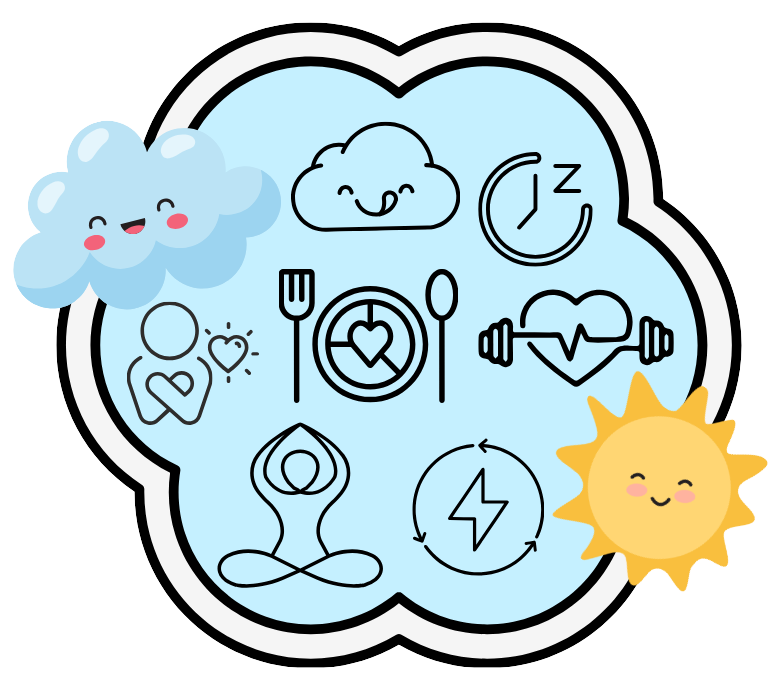
Balanced Exercise
Likewise, I aim to view movement as a celebration of my body rather than a form of punishment. By embracing it as a joyful activity rather than a means of compensation and control, I can create a healthier relationship with fitness. Additionally, I know I need to detach exercise from calorie calculations, much like my approach to food. Listening to my body proves challenging, as I’ve ignored its signals and needs for years. However, I recognize the need to find balance and allow myself rest. Ultimately, exercise should enhance my mental and physical well-being, not dictate or compromise it.
Writing as a Creative Outlet
Recently, I’ve rediscovered my passion for writing, and I am using it as a creative outlet. By channeling my thoughts and emotions into words, I can explore and process my experiences in a constructive way. This blog has emerged as a sanctuary for self-expression, offering a safe space for introspection. By sharing my stories, I feel a sense of connection and community. Additionally, in these reflections, I’ve gained valuable insights into myself. Writing is an ever-evolving part of my journey toward self-discovery, mental clarity, and emotional resilience, as I use its power to heal and grow.
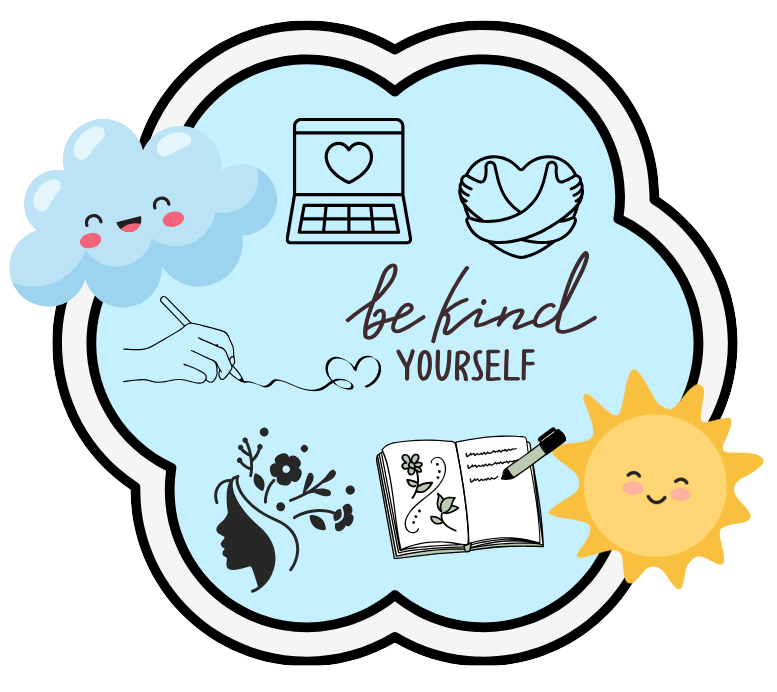
Self-Affirmation
Replacing self-criticism with self-affirmation is another critical area of growth for me. Learning to silence the harsh internal dialogue that often leads to feelings of inadequacy remains challenging. However, I strive to show myself more grace and foster a compassionate relationship with myself. This means recognizing my achievements and forgiving my shortcomings. Finding the balance between accountability and self-criticism is difficult for me. But, to repair my relationship with myself and reinforce my self-worth, this is something I must work on.
Reflecting on the Past: Lessons Learned
Historically, I’ve leaned heavily on negative coping mechanisms, especially through disordered relationships with food and exercise. These behaviors, while temporarily soothing, ultimately reinforce a cycle of stress and self-criticism.
One of the most pervasive challenges I face is an all-or-nothing mindset, which manifests across all aspects of my coping strategies. With food, finding a balance between healthy nutrition and allowing myself occasional indulgences has been particularly tough. Whether through severe restriction, binging, or health-conscious eating, I’ve damaged my self-trust. Likewise, this mindset carries over to exercise, as I often disregard rest. As a result, I overexert myself. Additionally, I get extreme anxiety if I don’t exercise.
Self-criticism is another destructive behavior; my harsh internal dialogue amplifies feelings of inadequacy and failure. This critical voice is loudest when I deviate from my diet or exercise routines. This reinforces the narrative that I am not doing enough.
Acknowledging these patterns has been crucial. However, truly breaking free from them requires not just recognition but a transformative approach to how I handle stress and self-expectation. Moving forward, these are a few things I know I must work on:
- Developing Balanced Habits: Gradually replacing all-or-nothing attitudes with more balanced, forgiving approaches to food and exercise.
- Cultivating Self-Compassion: Actively working to soften my self-dialogue, celebrating small victories, and accepting setbacks as part of the growth process.
- Embracing Rest: Recognizing rest as productive and necessary, not only for physical recovery but also for mental health.
The journey towards these goals is ongoing and requires continuous effort and adjustment. Yet, each step forward in this transformation is a step away from my old patterns and towards a healthier, more resilient self.
Navigating the Future: From Stress to Calm
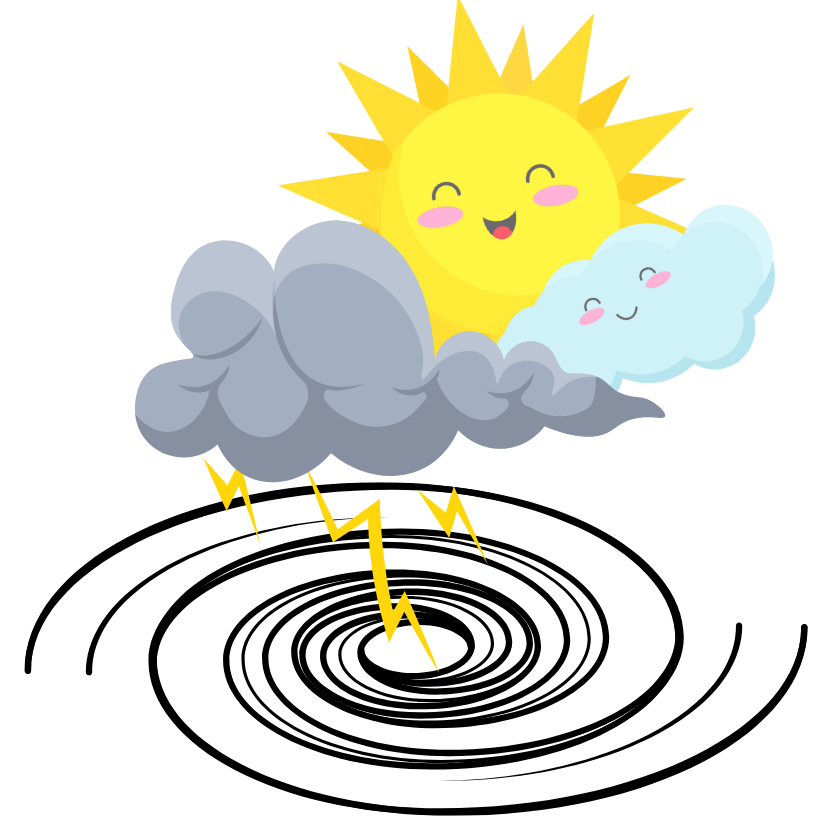
As I continue my journey, the importance of emotional regulation becomes increasingly evident. Adapting to stress has always been a challenge for me. However, I aim to find moments of calm amid life’s inevitable storms. As I continue to explore new coping mechanisms, I search both within myself and to outside resources for guidance.
Although I recognize the benefits of therapy, my access to it remains limited due to various obstacles. However, I’m committed to self-learning therapeutic practices, such as cognitive behavioral therapy (CBT). Through my research, I’m discovering how to reshape negative thought patterns into more constructive actions.
While this post focuses on the theme of stress, my journey transcends this singular topic. Fundamentally, it’s about altering my self-perception and my approach to life’s adversities. Ultimately, my goal is to cultivate a balanced and fulfilling life. Instead of merely existing and enduring, I want to feel fully engaged in each moment, finding joy and purpose where possible.
With each new revelation about myself, I find resilience and empowerment, knowing that I possess the strength to weather whatever challenges lie ahead. By sharing my story, I hope to not only foster my own healing but also to inspire others who face similar struggles. Remember, just as the eye of the hurricane is the calmest place to be, we, too, can find our calm amid life’s storms.
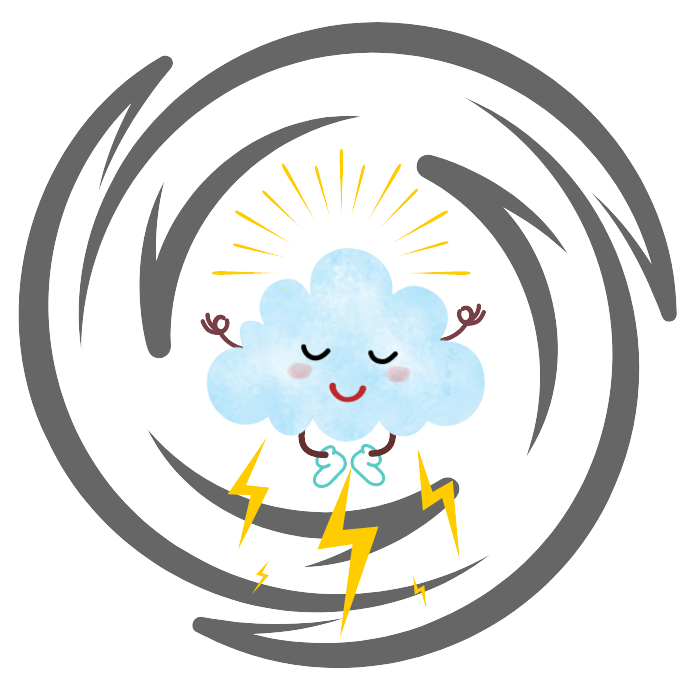


Pingback: Building Healthy Habits for a Better You - Breanna Williams
Pingback: Exercise Addiction: Finding the Line Between Health and Harm - Breanna Williams
Pingback: Personality Paralysis: The Perils of Perfectionism - Breanna Williams
Nutra Gears I just like the helpful information you provide in your articles
I’m glad you’ve found them helpful!